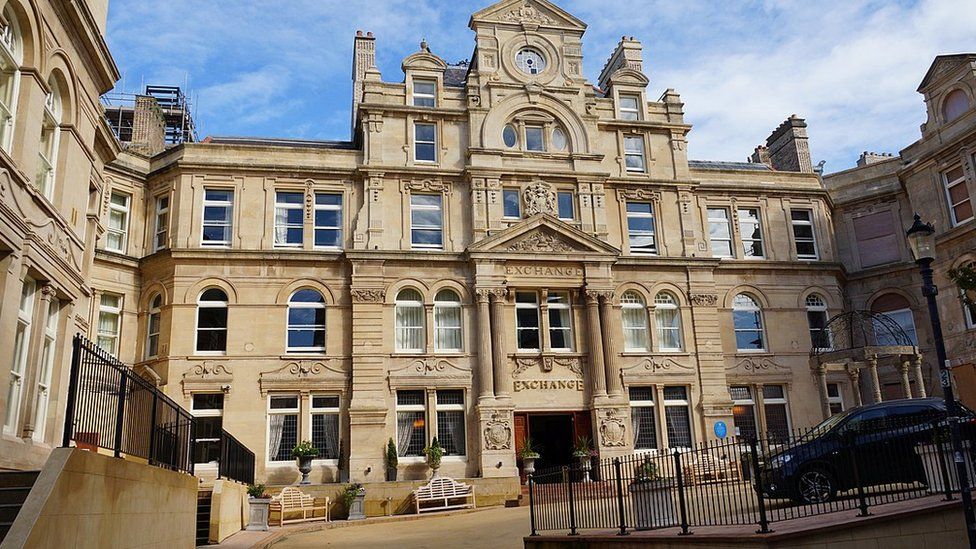Cardiff's Exchange Hotel owners go into administration
- Published

The hotel company which owns one of Wales' most historic buildings has gone into administration.
Insolvency firm Wilson Field has been appointed administrators of Signature Living Coal Exchange, which owns the Exchange Hotel in Cardiff Bay.
The firm had recently secured a £2m loan from Cardiff council to renovate the Grade II*-listed Coal Exchange.
The council said it had not parted with any cash and was working to get the work on the building completed.
Built in 1883, the Coal Exchange was once where the world price of coal was set and where the first £1m cheque was signed.
The first phase of the 173-bed Exchange Hotel opened in 2017 following a £15m refurbishment.
Several other projects run by hotelier Lawrence Kenwright's Signature Living Group have recently gone into administration, including the George Best Hotel in Belfast.
Work on the Exchange Hotel was partly funded by private investment, with investors purchasing individual rooms for tens of thousands of pounds. It is unclear how investors will be affected.
In a statement, a spokeswoman for Wilson Field said: "We will be issuing our proposals within eight weeks of appointment which will provide further details for creditors."
Local MP Stephen Doughty had raised concerns about Signature Living's track record and funding method.
Heritage campaigners had also expressed concern for a building "of great importance" to Wales.
The Coal Exchange - a short history
- Dates to 1883 when Cardiff was at the centre of the coal trade
- Coal merchants, ship owners and their agents met daily on the trading floor
- At one time the price of the world's coal was determined there and in 1904 the world's first recorded £1m deal was struck there
- Closed in 1958 after the decline of the coal industry in Cardiff
- Earmarked as a future home for the Welsh Assembly but that plan fell through after devolution was rejected in a 1979 referendum
- In more recent years it has been used for concerts, dinners and other events
- There were once plans for the exchange hall to be restored and a 1,300-seat banqueting hall, public square, office space and innovation centre to be developed
- Published23 January 2020
- Published20 May 2017
- Published8 April 2016